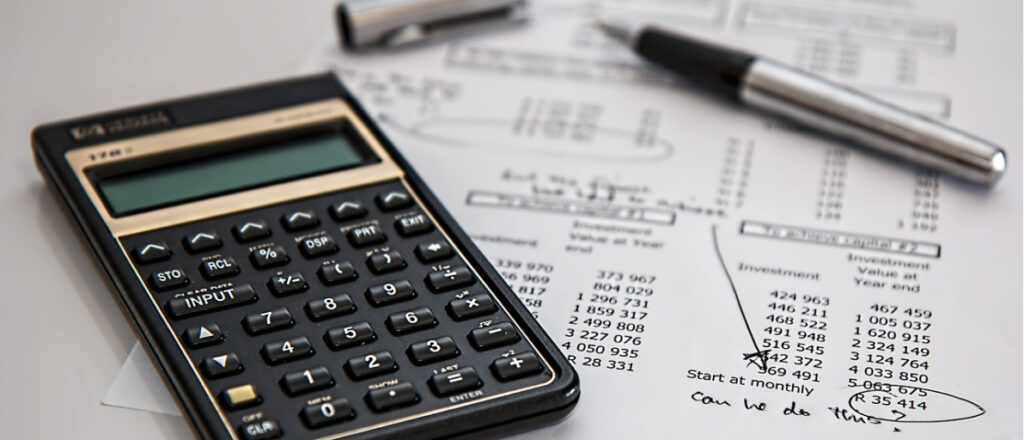Imagine a bustling kitchen, the clatter of dishes, the sizzle of pans, and the aroma of mouthwatering delicacies wafting through the air. Behind this symphony of senses, there’s an intricate dance of numbers, a careful choreography of cost accounting that ensures the restaurant’s financial health. It’s an essential, albeit less glamorous facet of the hospitality industry, where every ingredient has a price and every price impacts the bottom line. Why is this crucial, and how does it shape the success of a dining establishment? Let’s peel back this financial onion layer by layer.
Key Takeaways
- Restaurant cost accounting is crucial for managing expenses and enhancing profitability in the hospitality sector.
- Professional accountants streamline expense tracking, provide accurate financial reporting, and aid in strategic decision-making.
- Tools like bookkeeping software and cost allocation techniques improve the efficiency and accuracy of restaurant accounting practices.
- Outsourcing financial services brings industry-specific expertise, improving accuracy, efficiency, and long-term cost-effectiveness while supporting business growth.
Learn more about our Accounting Services!
1. Understanding the Basics of Restaurant Cost Accounting
To understand the basics of restaurant cost accounting, one must first grasp what it is and why it’s crucial in the hospitality industry. Key cost components play a significant role in the accounting process for restaurants, dictating profitability and financial stability. These costs, particularly prime costs and overheads, are carefully tracked by hospitality accountants to ensure the restaurant’s financial success.
What Is Restaurant Cost Accounting and Why It Matters
Diving into the financial backbone of the culinary world, restaurant cost accounting is a critical tool for managing expenses, increasing profitability, and ensuring the overall financial health of a restaurant. It’s a specialized form of hospitality accounting, handled by proficient restaurant accountants.
- Restaurant Cost Accounting: It’s the process of tracking, analyzing, and controlling the costs related to running a restaurant, providing valuable insights to make informed decisions.
- Importance of Accounting for Restaurants: Good restaurant financial services and accounting can make or break a business. Proper bookkeeping ensures transparency, efficiency, and financial control.
- Restaurant Accounting Tips: Implementing effective hospitality finance solutions, maintaining regular audits, and employing skilled restaurant accountants can enhance the profitability and sustainability of the restaurant business.
Understanding the importance of accounting in the restaurant industry is the key to a successful restaurant venture.
Key Cost Components in the Accounting for Restaurants
While managing a restaurant, it’s crucial to understand the key cost components that form the foundation of restaurant cost accounting. Hospitality accountants, specialized in accounting for restaurants and bars, provide comprehensive bookkeeping for restaurants, helping owners manage costs efficiently.
From nightclub financing to hotel bookkeeping, these accounting professionals offer a range of hospitality accounting solutions. They have a deep understanding of the different cost elements in the hospitality industry, including those unique to restaurants.
These cost components are vital in accounting for hotels as well, and accountants for hotels often use similar strategies. Whether it’s hotel accounting services or restaurant bookkeeping, it’s the job of hospitality accountants to ensure every penny is accounted for, providing a clear financial picture for business owners.
How Hospitality Accountants Track Prime Costs and Overheads
In the realm of restaurant cost accounting, hospitality accountants meticulously track prime costs and overheads, two critical aspects of a restaurant’s financial health. Prime costs include direct expenses such as labor and food, while overheads cover indirect expenses like rent and utilities.
They employ three main strategies to keep tabs:
- Regular Audits: They conduct periodic checks to ensure costs align with budgeted amounts.
- Cost Analysis: They compare current and historical data to spot trends or irregularities.
- Proactive Planning: They use predictive analytics for future cost management.
2. The Role of Hospitality Accounting in Cost Control
Hospitality accounting plays a crucial role in cost control within the restaurant industry. Through services enhancing profitability, accountants streamline expense tracking, ensuring an efficient operation. Furthermore, specialized accounting solutions provide a means to accurately monitor food costs, a critical aspect of financial management in any dining establishment.

Hospitality Accounting Services that Enhance Profitability
Effective cost control, a critical factor for success in the restaurant industry, often hinges on the implementation of robust hospitality accounting services. These services proactively manage revenue and expenses, providing a clear financial picture that can enhance profitability.
- Accurate Financial Reporting: Hospitality accounting services ensure precise financial data, vital for strategic decision making. They prevent financial discrepancies that can harm profits.
- Cost Analysis: They identify high-cost areas and suggest measures to cut back without compromising quality. This can significantly boost the bottom line.
- Regulatory Compliance: They guarantee adherence to financial regulations, avoiding potential fines and legal issues that can impact profitability.
In essence, hospitality accounting services play a crucial role in restaurant cost control and profitability enhancement.
How Restaurant Accountants Streamline Expense Tracking
To streamline expense tracking in a restaurant, accountants rely heavily on hospitality accounting, a key tool in cost control. It provides a systematic approach to record, analyze, and monitor expenses, aiding in effective decision-making.
A typical expense tracking process involves:
| Step | Task | Importance |
|---|---|---|
| 1 | Collection of Receipts | Captures all purchases, ensuring no expense is missed |
| 2 | Categorization | Organizes expenses into categories for easy identification |
| 3 | Analysis | Identifies spending patterns, potential savings |
| 4 | Reconciliation | Matches receipts to bank statements to validate expenses |
| 5 | Reporting | Provides insights into expense trends, highlights areas for cost reduction |
Through this process, restaurant accountants ensure every dollar is accounted for, preventing unnecessary losses and contributing to the overall financial health of the establishment.
Using Hospitality Accounting Solutions to Monitor Food Costs
In the realm of cost control, leveraging hospitality accounting solutions for monitoring food costs proves to be a game-changer for many restaurants.
- These solutions enable real-time tracking of food costs, giving restaurant owners instant insights into their spending.
- They also automate the tedious task of manually calculating food costs, saving precious time for other important tasks.
- Moreover, they can predict future food costs based on past data, allowing for better planning and budget management.
3. Tools and Techniques Used by Restaurant Accountants
In the realm of restaurant cost accounting, there are specific tools and techniques employed by accountants. These include the use of restaurant bookkeeping software versus traditional methods, leveraging cloud systems for hotel bookkeeping, and cost allocation. The following discussion will also touch upon best accounting practices for hotels and nightclubs.
Restaurant Bookkeeping Software vs. Traditional Methods
While many restaurant accountants still rely on traditional methods, a growing number are turning to sophisticated bookkeeping software to streamline their operations. Modern software offers three significant advantages:
- Efficiency: Automated calculations and report generation save time, reducing the risk of human error.
- Integration: These tools can seamlessly connect with other systems, like inventory or payroll, for a holistic view of the business.
- Accessibility: Cloud-based solutions allow for remote access, enabling real-time decision making based on up-to-date financial data.
Despite the advantages, some accountants prefer traditional methods such as manual entries and physical ledgers. They believe in the control and familiarity these methods provide, even though they’re more time-consuming and error-prone.

Leveraging Cloud Systems for Hotel Bookkeeping and Cost Allocation
As the restaurant industry evolves, many accountants are leveraging cloud systems for hotel bookkeeping and cost allocation, adopting cutting-edge tools and techniques to enhance their financial management strategies. These cloud-based systems offer real-time data access, streamlining the process of tracking revenue and expenses. They’re also scalable, accommodating growth without requiring system overhauls.
Moreover, cloud systems provide robust security features, protecting sensitive financial information from breaches. They also offer automated features for cost allocation, reducing manual labor and minimizing errors. By integrating with other business operations, they facilitate comprehensive financial management. With such advantages, it’s no surprise that more restaurant accountants are relying on cloud systems for their hotel bookkeeping and cost allocation needs.
Best Practices in Accounting for Hotels and Nightclubs
Building on the modern trend of utilizing cloud-based systems in restaurant accounting, there are various best practices that accountants employ for managing finances in hotels and nightclubs.
- Proper Inventory Management: It’s essential to track inventory meticulously. This helps in determining cost of sales and spotting discrepancies in time.
- Detailed Sales Forecasting: Accountants use historical data to predict future sales, helping in budgeting and financial planning.
- Regular Financial Audits: Routine audits ensure financial integrity and compliance with legal requirements.
These practices, coupled with innovative tools and techniques, help accountants streamline financial processes, improve accuracy, and ultimately boost profitability in the hospitality sector. The emphasis is always on precision, transparency, and strategic use of technology.
4. Expert Insights from Hospitality and Restaurant Accountants
Hospitality and restaurant accountants offer invaluable insights into the industry, providing a unique perspective on budgeting, growth, and common accounting pitfalls. They hold the key to improving budgeting accuracy, essential for managing and predicting costs. Furthermore, their specialized knowledge becomes vital for a restaurant’s growth, helping to avoid common pitfalls that could hinder progress.
How Hospitality Accountants Improve Budgeting Accuracy
In the ever-changing world of hospitality, expert accountants are constantly fine-tuning budgeting strategies to increase accuracy and efficiency. They employ a three-pronged approach to achieve this:
- Forecasting: They use historical data and current market trends to predict future expenses and revenues. This helps in setting realistic budgets.
- Monitoring: Accountants constantly review financial reports to ensure the business stays within the budget. They identify variances promptly and suggest corrective action.
- Adjusting: Based on the monitoring results, they regularly adjust the budget. This ensures the budget remains aligned with the business’s current financial health and future goals.
Through these strategies, hospitality accountants enhance budgeting accuracy, enabling restaurants to manage their finances more effectively.
Why Specialized Restaurant Accountants Are Essential for Growth
While honing budgeting accuracy is a key aspect, it’s the specialized restaurant accountants who often spearhead business growth, as they bring industry-specific knowledge and expertise to the table. These professionals understand the unique financial challenges and opportunities within the hospitality sector, enabling them to provide invaluable advice on cost control, revenue enhancement, and profitability. They’re adept at developing strategies tailored to the restaurant’s specific needs, including optimal pricing models and effective inventory management.
Moreover, they ensure compliance with industry regulations and tax laws, mitigating financial risks. They also provide critical insights into financial performance, helping to drive informed decision-making. In essence, specialized restaurant accountants are not just number crunchers; they’re strategic partners essential for growth.
Accounting in the Restaurant Industry: Common Pitfalls to Avoid
Navigating the intricate world of restaurant accounting, even seasoned professionals can stumble into common pitfalls that can hinder financial growth and stability. The hospitality industry presents unique challenges that demand specialized knowledge and skills.
- One common pitfall is failing to accurately track inventory. This can result in inflated costs and undetected theft.
- Secondly, many overlook the importance of segregating duties. Without proper checks and balances, the potential for fraud increases.
- Lastly, it’s easy to neglect regular financial analysis. Without it, important trends and issues may go unnoticed, jeopardizing profitability.
Avoiding these pitfalls isn’t just about maintaining financial health; it’s about laying the groundwork for sustainable growth. With diligence and expert guidance, restaurants can sidestep these common missteps.
5. Cost Accounting in Multi-Unit Hospitality Operations
Cost accounting in multi-unit hospitality operations presents unique challenges and opportunities. Considerations range from scalable finance solutions for franchise chains to specific accounting practices for hotels and nightclubs. There’s also the potential efficiency gains from outsourcing financial services in the restaurant sector.

Scalable Hospitality Finance Solutions for Franchise Chains
Implementing scalable hospitality finance solutions can significantly streamline cost accounting in multi-unit hospitality operations, such as franchise chains. It’s not just about cost savings; it’s about improving efficiency, reducing errors, and gaining better insights into financial performance.
Three key benefits include:
- Efficiency: Scalable solutions automate routine tasks, freeing up time for strategic decision-making.
- Accuracy: Automated systems reduce the risk of manual errors, ensuring more accurate financial reporting.
- Insight: These solutions offer real-time reporting and analytics, providing valuable insights for performance improvement.
In the fast-paced, competitive world of restaurant franchises, having a scalable hospitality finance solution isn’t just a nice-to-have, it’s a necessity. It’s a strategic tool that can drive growth and profitability.
Hotel Accounting and Nightclub Financing for Multi-Venue Operators
Just as scalable solutions revamp accounting in restaurant franchises, they also play a significant role in multi-venue operations like hotels and nightclubs. These businesses benefit substantially from specialized cost accounting, greatly improving their financial management.
| Hotel Accounting | Nightclub Financing |
|---|---|
| Streamlines room rates, occupancy, and other overhead costs | Facilitates tracking of high-volume cash transactions |
| Enables accurate forecasting of seasonal fluctuations | Assists in managing fluctuating inventory and vendor relationships |
This approach enhances transparency, leading to better decision-making. It allows multi-venue operators to track income and expenditures across varying business models, ensuring profitability. Through cost accounting, hotels and nightclubs can identify inefficiencies and implement strategies to improve their bottom line. It’s a vital tool in the complex world of multi-unit hospitality operations.
Outsourcing Restaurant Financial Services for Greater Efficiency
Leveraging outsourced financial services can significantly boost efficiency in restaurant operations, particularly when it comes to cost accounting in multi-unit hospitality businesses. It’s a strategic move that’s proving to be advantageous for many restaurant owners and operators. Here’s why:
- Expertise: Experienced financial service providers have in-depth knowledge about industry-specific cost accounting, ensuring accurate and efficient handling of financial tasks.
- Time-saving: Outsourcing eliminates the need for in-house accounting, freeing up time for focusing on core operations and customer service.
- Cost-effective: While there’s an upfront cost, outsourcing could potentially save money in the long run by avoiding costly errors, streamlining processes, and reducing the need for full-time, in-house financial staff.
Outsourcing isn’t just a trend; it’s a strategic tool for efficient restaurant management.
NYC Hospitality Alliance: Industry Statistics
Conclusion
Navigating restaurant cost accounting is like exploring a bustling kitchen during peak dinner service. It’s a riveting, fast-paced world, filled to the brim with hospitality accounting techniques and tools. From the wisdom of seasoned accountants to the complexities of multi-unit operations, it’s an exhilarating ride. One thing’s for sure, the world of restaurant cost accounting is as flavorful and complex as the most exquisite dish on your favorite eatery’s menu.
Frequently Asked Questions
What is restaurant cost accounting and why is it important?
Restaurant cost accounting involves tracking, analyzing, and managing all costs related to operating a restaurant—like food, labor, and overhead. It helps restaurant owners understand their expenses, improve profitability, and make data-driven financial decisions.
How do hospitality accountants help control costs in restaurants?
Hospitality accountants track prime costs, analyze overheads, and implement budget forecasts. They use specialized tools and hospitality accounting services to ensure that every expense is monitored and optimized for profitability.
What tools are used for restaurant cost accounting?
Tools range from cloud-based restaurant bookkeeping software to integrated inventory and payroll systems. These tools help streamline expense tracking, automate cost allocation, and provide real-time financial reporting for better control.
Should I outsource my restaurant’s financial services?
Yes, outsourcing can be cost-effective and efficient. It provides access to experienced restaurant accountants who specialize in hospitality finance, improves accuracy, reduces internal workload, and ensures regulatory compliance.
What are common accounting mistakes restaurant owners should avoid?
Frequent pitfalls include poor inventory tracking, lack of financial analysis, failure to segregate duties, and ignoring budgeting practices. These can lead to losses, compliance issues, and missed opportunities for growth.


























